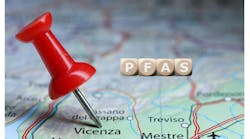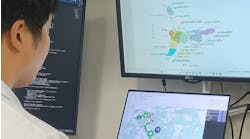I’ve become quite familiar with the Institution of Chemical Engineers (IChemE) over the years. It started with a process safety webinar Chemical Processing offered that featured subject matter expert Trish Kerin, the director of the IChemE Safety Centre, which then led to a podcast that I host with her -- Process Safety With Trish & Traci.
The IChemE’s goal since its inception 100 years ago is to advance chemical engineering’s contribution for the benefit of society. They have offices in the UK and Australia (Trish is based in Victoria, Australia), but their reach is global and the messages are universal. Of the 33 podcast episodes she and I have recorded so far, I am always impressed with the passion Trish brings to the process-safety discussion. She’s a true evangelist for making sure workers get home safe and sound after every shift.
The podcast takes a look back at past incidents in order to help avoid future events. She often cites IChemE resources for more information. There is yet another resource available: Learning Lessons From Major Incidents.
The IChemE Safety & Loss Prevention Special Interest Group (S&LP SIG) has developed a Lessons Learned Database to raise awareness of high-profile incidents in the process industries. Each incident has a peer-reviewed one-page summary report, which contains a brief description of the event, basic cause, critical factors, root causes, lessons learned and reference documentation.
The 67-page PDF is put together by one of Trish’s colleagues Peter Marsh, CEng MIChemE, director of XBP Refining Consultants Ltd. and an IChemE S&LP SIG committee member. Marsh notes that these incident reports can be used as posters in the workplace to raise safety awareness and promote discussion. There are 52 reports -- one for each week of the year.
Incidents include Piper Alpha, Deepwater Horizon, Longford, Chernobyl, Fukushima, Flixborough, Bhopal and West Fertilizer and are categorized by sectors (energy, chemical, water, food). Many of these incidents have been covered in our podcast -- and I am looking to this list to flesh out several new episodes.
The Foreword to the PDF succinctly states the need for such documents: “Over many decades, the world has tragically continued to see process safety incidents occur, resulting in the loss of many lives and impacts to the environment. Chemical Engineers have a vital role in working with others to take up the challenge to learn from past events and continually improve process safety. Indeed, the late Trevor Kletz reminded us that we need to influence key stakeholders and decision-makers ‘by showing them the consequences of bad practices and design, sharing the lessons of accidents and near misses.’”
Traci Purdum is Chemical Processing's Executive Editor and host of the Process Safety With Trish & Traci podcast series. Some day she hopes to travel to Australia to record a podcast in person. You can email her at [email protected].


